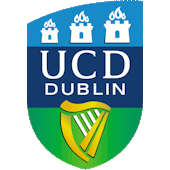Darragh Golden’s research traces the official position of Italian and Irish trade unions on the question of European integration across time (1950 – 2014). The European integration process is divided into three distinct phases. The research treats unions as both political actors and economic actors as well as treating European integration as a grand political ideal but also as a transformative socio-economic process, which over time has changed and become increasingly controversial. The 7 European treaties are used to gauge the official positions of unions across time. Drawing on archival analysis and a large number of trade union documents, a common trajectory is shared by the Italian and Irish unions during the first two phases. It is in the latter that a pro-European consensus emerges. However, in the third phase this consensus begins to unravel, but only in the Irish case as the Italian unions remain obdurately pro-European. This variation presents an interesting research puzzle.
To explain this variation the analytical lens is fine-tuned with the objective of capturing characteristics synonymous with the third phase of European integration. Here, the free movement of labour and services, in the context of EU enlargement, are identified as such. To appreciate the re-structuring effects of these ‘freedoms’ we also narrow the focus of study to a specific economic sector. In this case, the construction sector is chosen where Italian and Irish unions were exposed to similar challenges associated with intra-EU mobility. Having comparatively assessed trade union strategies in the Irish and Italian contexts, the following conclusions can be drawn. Firstly, the ‘coping mechanisms’ – both regulatory and non-regulatory – of Italian construction unions are more attuned to the challenges of European integration in the third phase. Secondly, a feedback loop between individual unions’ experiences on the ground and the position that they adopt on the European project can be identified. In turn, this feedback loop informs debates within the wider trade union movement.
As the effects resulting from European integration become increasingly diffuse actors, such as unions, that were hitherto relatively insulated from the restructuring dynamics, synonymous with liberalization, might become increasingly critical of European integration. This is especially the case where the government is reluctant to introduce regulation to offset the risks of social dumping. In other words, a liberal regulatory environment might only made matters worse as the risk of social dumping increases. This could have implications for the support base of European integration, from which the project draws its legitimacy
Experience
-
–presentPost-doctoral researcher, University College Dublin
- Website
- Article Feed
- Joined


